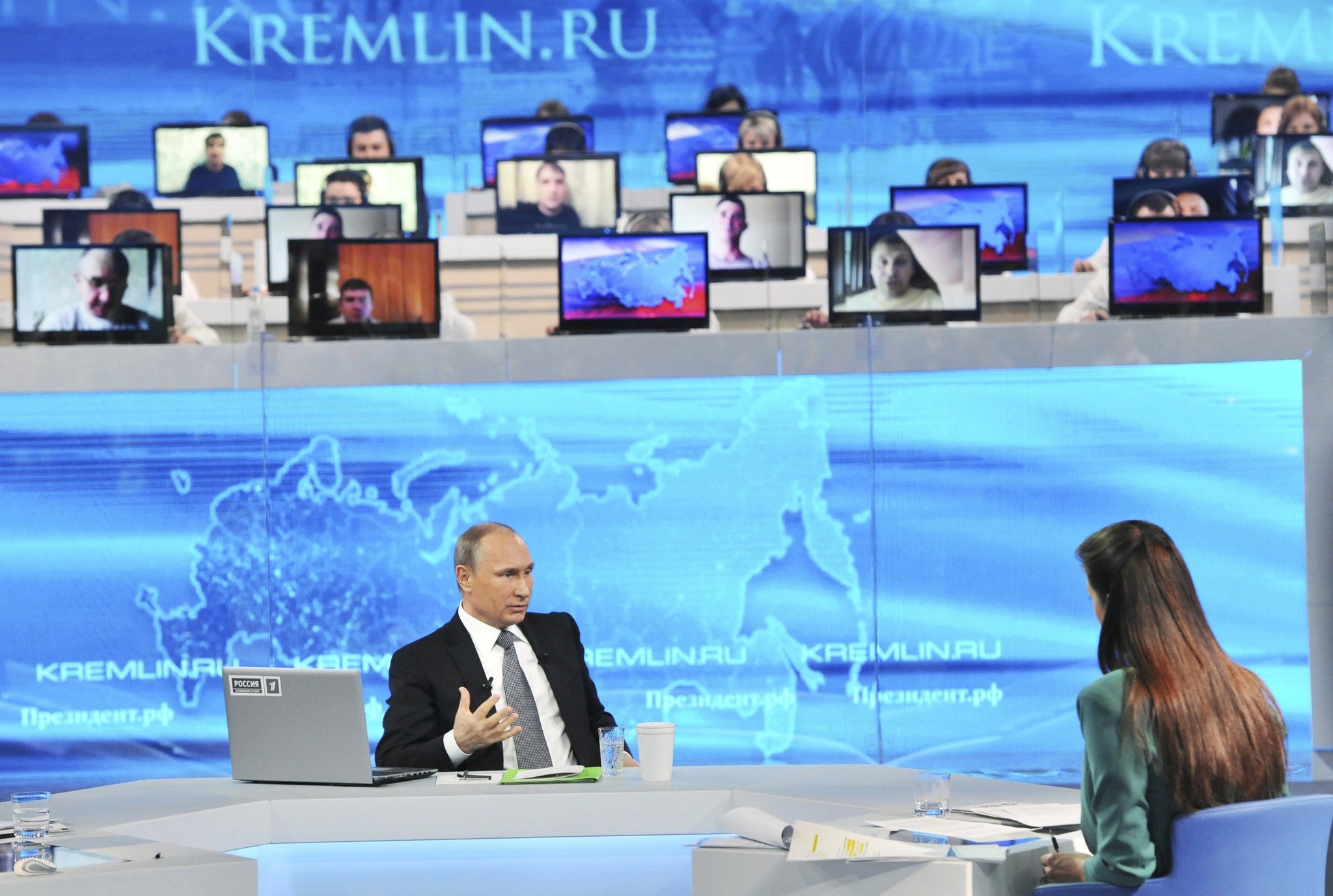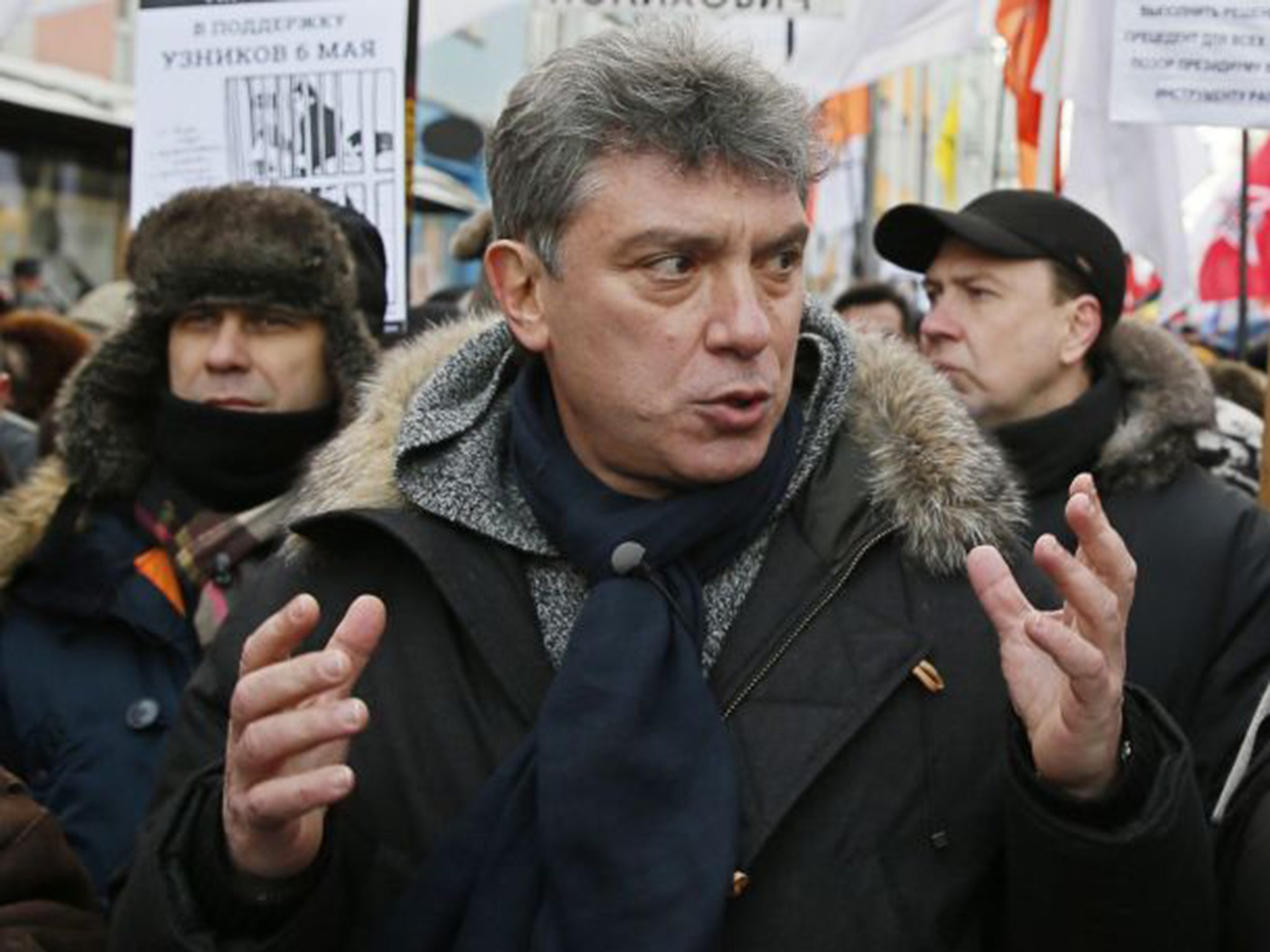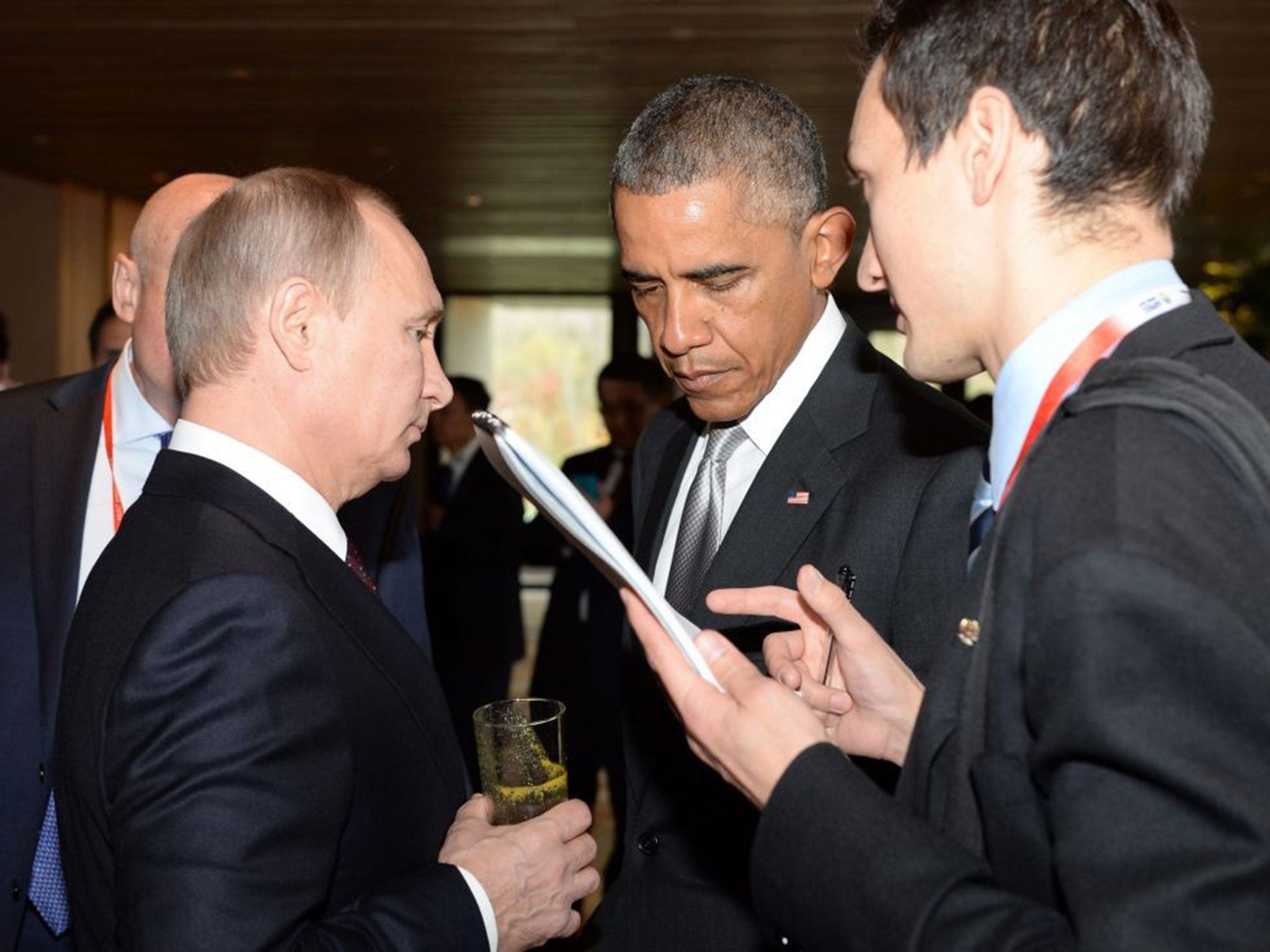Vladimir Putin Q&A round-up: 12 things we learned from the Russian President's call-in
Mr Putin is a terrible marriage counsellor and doesn't want to be cloned

Your support helps us to tell the story
From reproductive rights to climate change to Big Tech, The Independent is on the ground when the story is developing. Whether it's investigating the financials of Elon Musk's pro-Trump PAC or producing our latest documentary, 'The A Word', which shines a light on the American women fighting for reproductive rights, we know how important it is to parse out the facts from the messaging.
At such a critical moment in US history, we need reporters on the ground. Your donation allows us to keep sending journalists to speak to both sides of the story.
The Independent is trusted by Americans across the entire political spectrum. And unlike many other quality news outlets, we choose not to lock Americans out of our reporting and analysis with paywalls. We believe quality journalism should be available to everyone, paid for by those who can afford it.
Your support makes all the difference.After four hours and a reported three million submitted questions, Vladimir Putin’s annual marathon TV call-in show is finally over for another year.
A slickly-produced question and answer programme, this year threw up a mixture from serious queries on the Ukraine crisis and relations with the West to ridiculous inquiries about buying dogs and cloning,
While the “Direct Line to the nation” seemed to involve a disproportionate number of questions from senior establishment figures in the studio, it also provided a rare insight on the man voted the most influential in the world.
Here’s what we learned.
Russia ‘has no imperialist ambitions’
Mr Putin fielded a number of questions relating to the Ukraine crisis and Russia’s relationship with neighbouring countries like Belarus or Kazakhstan, nations which dance to the federation’s tune.
Mr Putin said his only interest was ensuring that people of Russian origin living in these countries were treated well, and said that like the rest of the world he wants to improve integration with bordering states. Referencing relations between the US and Canada, Latin American states and the EU, he took issue with the fact that when Russia tries this, it gets accused of building an empire.
Mr Putin blames the US for the rise of Isis
Asked about the issue of Russian nationals going to fight for the so-called Islamic State, the President insisted that there was no “direct threat” of them returning to attack Russia at this time.
He also took the opportunity to have a swing at Washington, saying that US foreign policy – in particular the decision to overthrow Saddam Hussein – had led to a rise in extremism in Iraq where “there had been none before”.
Mr Putin is a terrible marriage counsellor
Things turned a bit silly when one caller said she and some other women wanted to buy one of their friends a pet dog for her 40th birthday, but that her strict former-military husband did not like the idea.
In a slightly sexist intervention that’s unlikely to help anyone, Mr Putin appealed to the retired colonel: “Boris, please, let your wife get a dog. It’s a good deed and will strengthen your family.”
Mr Putin thinks Russia doesn’t need any allies
In another question about Russia’s position in the world, one caller asked who exactly were the nation’s allies.
To this, Mr Putin said he agreed with a quotation from the 19th century Russian emperor Alexander III, who said: “Russia has just two allies, its army and its navy.”
Mr Putin doesn’t want to clone himself
The President’s shortest response to a question came following a rather fawning reference to his extraordinary personal popularity ratings, which top 80 per cent despite the country being in recession.
Q: “Dear Vladimir Vladimirovich! Have you ever thought about cloning yourself? There are no other officials who the nation trusts!”
Mr Putin: “No.”
Russia may never find who ordered the killing of Boris Nemtsov
Asked about the assassination of the prominent opposition leader just a few hundred yards from the Kremlin itself, Mr Putin described the incident as “tragic and shameful”.
The President said he would intervene with the Moscow Mayor over suggestions that flowers left in memory of Mr Nemtsov were being bagged up and removed by officials.
But he said that, despite the fact five Chechens have been arrested over the shooting, investigators may never know who masterminded the killing. When asked a second time about this point, Mr Putin declined to comment further

Russia’s economy could return to growth in two years
Despite official estimates that the Russian economy will shrink by between 3 and 5 per cent this year, Mr Putin remained upbeat on the nation’s prospects.
He admitted that he saw no immediate end to Western sanctions imposed over the Ukraine crisis, but pointed to the Ruble’s recovery as a sign of investor confidence and said Russia could be back growing again within two years.
“If we preserve a stable situation in domestic politics, preserve the current consolidation of society, we shouldn’t fear any threats,” he said.
Russia ‘has no military forces in Ukraine’
Since the start of the Ukraine crisis, Moscow has repeatedly denied charges from the West that it is directly arming and reinforcing the separatist rebels.
Despite Nato and rights groups reporting otherwise, Mr Putin said today: “I will tell you openly and straightly. There are no Russian troops in Ukraine.”
Mr Putin can panic under pressure
One of the only hiccups in the smoothly-run programme was when an emotional video message was aired showing a woman whose home had been burned down in the recent Siberian wildfires crying and begging for help.
Despite the fact that he would have been briefed beforehand that such messages were pre-recorded, Mr Putin couldn’t help but react and asked the screen: “How quickly did the fire spread?”
He quickly recovered after the presenter gently reminded him the woman would not be able to hear, and decreed – seemingly on the spot – amounts of compensation to be paid to those affected by the fires.
Russia is not worried about war with Ukraine
One question sent via a reporter in the field came from a hotel-owner in western Russia, whose business lies near the border with crisis-stricken eastern Ukraine.
She said she and her family were “terrified” about violence spilling over into Russian territory – but an almost-smiling Mr Putin shrugged off her fears.
“There will be no war,” he said, adding that the “few shells” that had fallen on Russian soil since the conflict began were “accidents” and nothing to worry about.
There was nothing wrong with lifting the missile-delivery embargo on Iran
Mr Putin defended the decision, made this week, to lift a ban on selling defensive missiles to Iran.
He said the Middle Eastern state had shown “a desire to reach compromise”, and said that it did not undermine international sanctions on the basis that Russia’s ban, in force since 2010, was “voluntary”.
It is up to the West to normalise relations with Russia
Among the high-profile figures to be given the chance to ask questions was the editor-in-chief of the Nezavisimaya Gazeta newspaper, Konstantin Remchukov.
He said that he was among those in Russian society who felt the country was better off when it was working with the US rather than against it.

But Mr Putin said a normalisation of diplomatic relations would only happen if the West respected Russia’s international interests, adding: “[The US] doesn’t need allies, it only needs vassals.” He said Russia would never accept a relationship on those terms.
Subscribe to Independent Premium to bookmark this article
Want to bookmark your favourite articles and stories to read or reference later? Start your Independent Premium subscription today.
Join our commenting forum
Join thought-provoking conversations, follow other Independent readers and see their replies
Comments